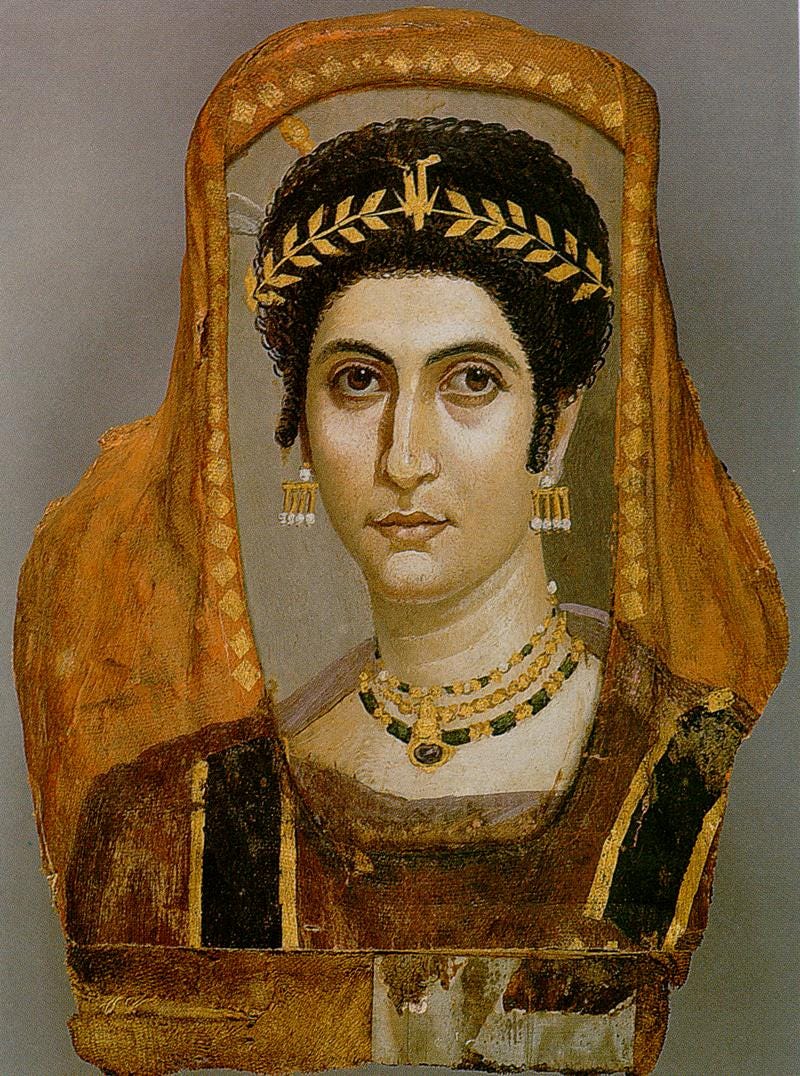I am absolutely obsessed with a free-to-use database of Egyptian papyri: www.papyri.info. The search engine is quite clunky (think about what websites looked like 20 years ago!) but the treasures it contains are just amazing. It is filled with everything from personal letters to tax returns, from receipts to complaints aimed at local officials.
In a previous post, I wrote about my favourite letter by a stroppy pre-teen, you can read it by clicking here. The reason I love it so much is because of how relatable it is. It describes an experience that could just as easily easily have been written last week but actually dates almost 2,000 years. Today’s post is about something a little different.

When we read about the lives of ancient people it is easy to fall into the trap of believing that ancient women had no autonomy at all. There is a lot of research that dispells this idea, but to be fair a lot of our core evidence (from rich men, generally) does often create this impression. But, when it comes to ancient Egyptian women, this really does not need to be the case because of just how much evidence we have to the contrary. We see them running businesses, living independently, signing contracts on their own behalf. Another place we see a sense of agency is in divorce proceedings!
The example here is from a statement of divorce (a common occurence in the ancient world) between a man called Aurelius Sarapio and his former wife Aurelia Mariam. What I love about this is not just the information about the divorce itself, but also the little snippets of information we get about the wider family:
Aurelius Sarapion, son of Georgios the late physician, of the mother Sophia, date-seller, hailing from the village of Isidoros of the Hermopolite nome, and residing for a long time here in this fair Antinoopolis, to Aurelia Mariam, daughter of Phoibammon the farmer, from the mother Eirene, hailing from the village of Mounkrekis of the Antaiopolite nome, and residing here in the same city, greetings. Since long ago I entered a legitimate marriage with you and shared life, believing I would spend my life with you in peaceful marriage, right now I do not know how malicious ill-will having been shed between us separated us from each other from this shared cohabitation, for this reason I, the aforementioned Sarapion, your once husband and presently cut off from living with you, acknowledge that I have henceforth no claim against you for any matter whatsoever, written or unwritten, adjudicated or not, neither with regards to the union of marriage and its expenses and the bridal gifts, nor concerning the baby born to us …
So Aurelius was clearly from a well to-do family, his late father was a physician after all. But more interestingly, his mother Sophia also has a job as a date-seller. There is often a misconception that ancient women did not work, or indeed were not allowed to, but this is clearly not the case. Aurelia’s father was a farmer, maybe even a landowner, while her mother Eirene is not listed with a profession.
Their marriage is described as legitimate and, allegedly, Aurelius had hoped for it to last until death. Which makes his next claim all the more intriguing:
right now I do not know how malicious ill-will having been shed between us separated us from each other from this shared cohabitation
Clearly, something has gone very wrong! A shift has occurred in their relationship, so he thinks, but he does not know how or why. We do not have any details, but this very much sounds like it is his fault. Ignorance is the plea of a guilty husband!
From this state of confusion he renounces all legal and social claim over her as his wife (a rather telling insight into the nature of marriage). He renounces claims to the dowry and wedding gifts. Rather interestingly, he also announces he has no claim over their child, but this is where the papyrus breaks off and we have no more of the text. I wonder if it would have explained why?
This is just one of dozens of surviving divorce contracts and statements. We also see the idea of divorce written into contracts of marriage, so from the very start people were prepared for marriages to break down.
Some may call that pragmatic, others would say they were planning to fail. Either way, marriages ended and lives moved on.



